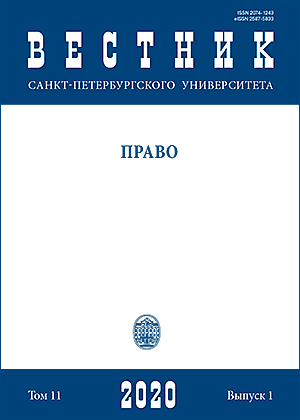Political justice: Essence, genesis, and evolution
DOI:
https://doi.org/10.21638/spbu14.2020.117Abstract
The article deals with the phenomenon of the dependence of the judicial branch from the political authorities, known as “political justice”. Various forms of manifestation of this phenomenon in numerous types of legal proceedings (international, constitutional and criminal) are investigated. In addition to the politicization of justice, the opposite phenomenon is also observed — the judicialization of politics, which means more active listening by politicians to the position of the judiciary and more frequent appeals by politicians to legal means in order to achieve political goals. Indicators of judicial statistics are analyzed, indicative of the presence of an accusatory bias as a sign of politicization of the judiciary sui generis. Referring to specific trials (in particular, on former heads of state, political opponents of the ruling elite and Islamic extremists), different kinds of procedural tricks are used, which the judges resort to in resolving this category of cases. Positive and negative aspects of the interaction of courts with the legislative and executive branches of state power are highlighted. Psychological phenomena in the behavior and consciousness of judges that accompany “political justice”, in particular the so-called “strategic flight phenomenon”, can be analyzed where judges refrain from making decisions on high-profile cases, artificially delaying their consideration. The prevalence of a situation in which two parallel systems coexist peacefully in the structure of the judiciary is ascertained: ordinary courts and various kinds of emergency tribunals and other structures involved in political repressions. Reference is made to the practice of the European Court of Human Rights, in which the latter stated the political motivation of a number of criminal cases previously resolved by the national courts. In particular, a characteristic trick that lawyers resort to under conditions of political justice is to give retroactive force to the law.
Keywords:
“political justice”, constitutional justice, political repression, accusatory bias, prosecution of heads of state, international criminal justice
Downloads
References
Downloads
Published
How to Cite
Issue
Section
License
Articles of "Vestnik of Saint Petersburg University. Law" are open access distributed under the terms of the License Agreement with Saint Petersburg State University, which permits to the authors unrestricted distribution and self-archiving free of charge.






